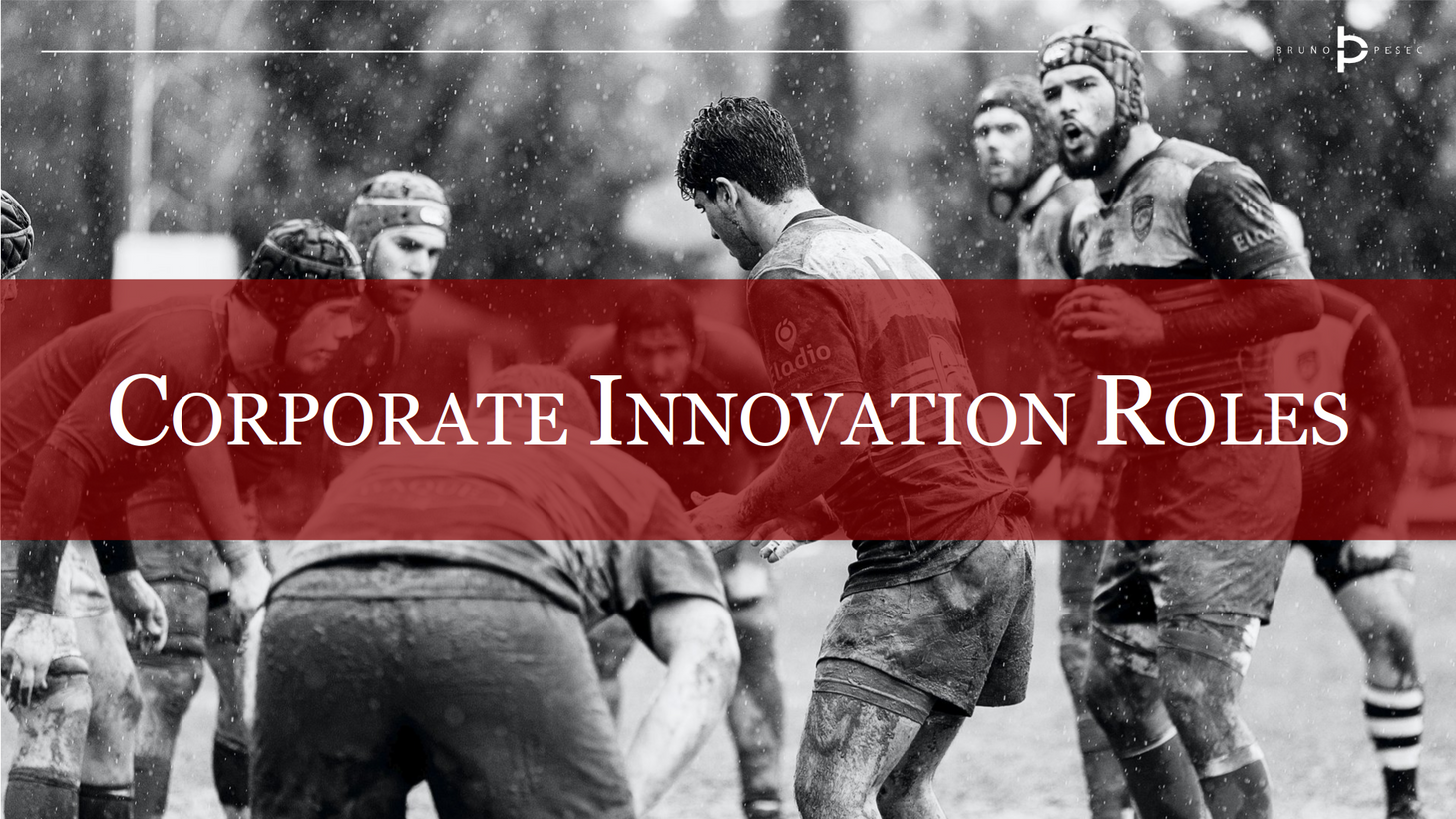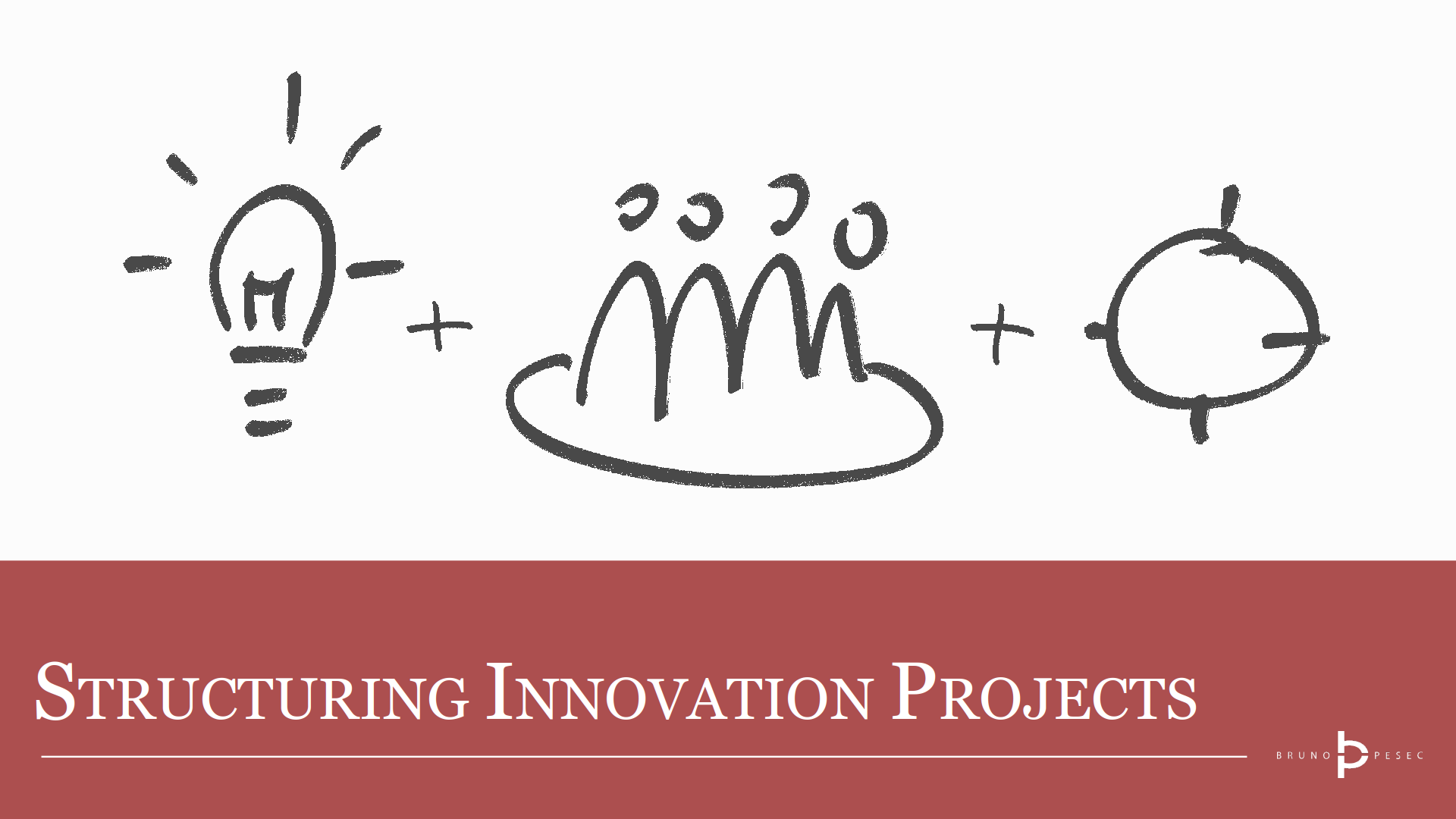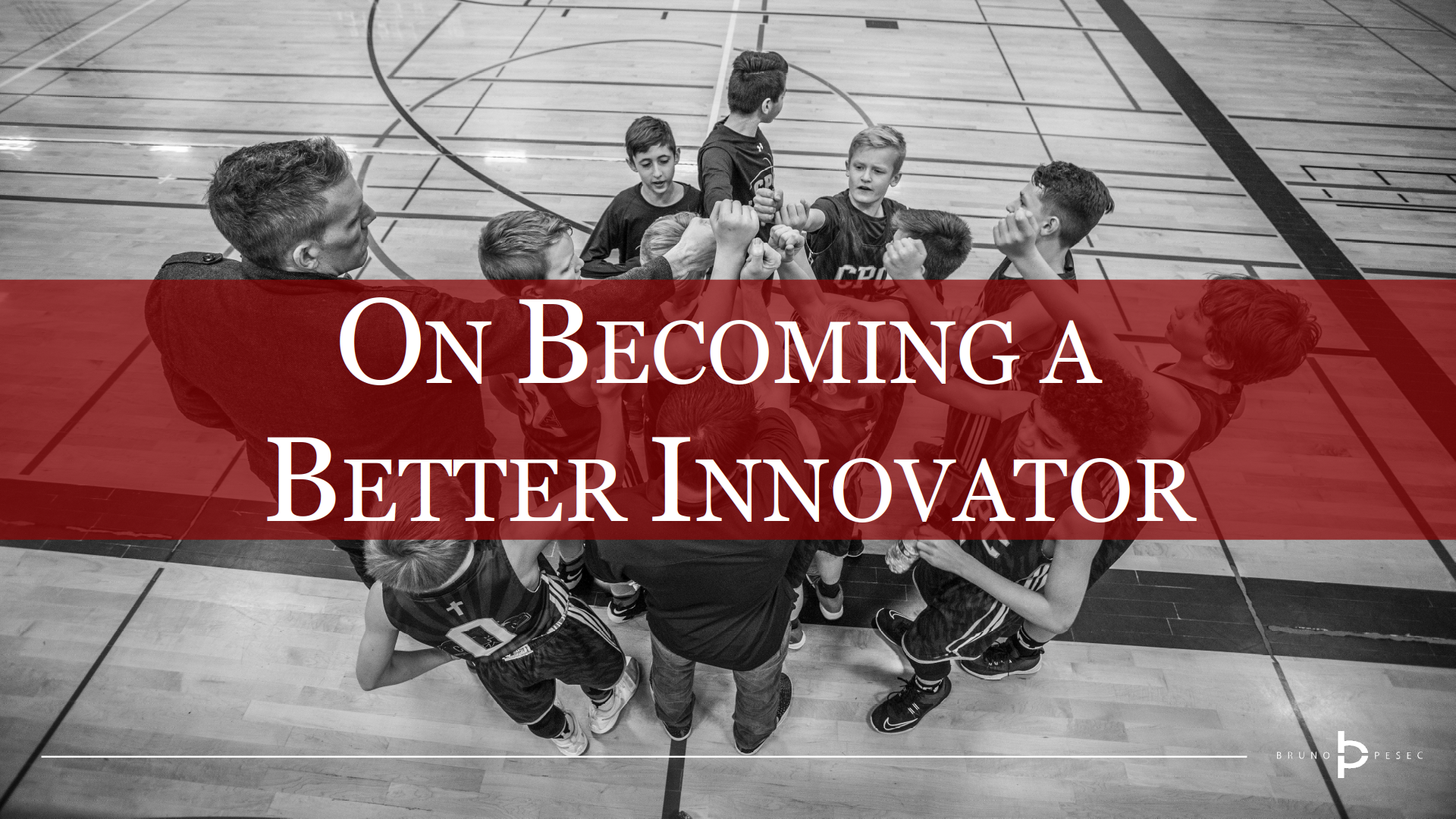Corporate innovation roles
Three roles for any innovation system.

In order to create clarity of purpose and activities, I find it useful to differentiate between innovation drivers and enablers at the organisational level.
Drivers have a clear ownership of the ideas by investing their resources in exploration and implementation. They are most qualified to determine their opportunity areas and prioritize their budget.
Your customer facing business units are the most suitable drivers.
Enablers are there to support by process expertise, and can be both internally focused (e.g. service design, prototype development) and externally focused (e.g. corporate venture capital, strategic partnerships).
Since different layers of organisation perform different jobs, it is expected that they encounter different problems and challenges.
In most cases, we can abstract three layers:
- strategic (overall direction and investment decisions),
- managerial (orchestration and performance measurement), and
- operational (execution and delivery).
Based on these, I’ve experimented with the following three roles:
- innovation board (synonyms: growth board, venture board),
- innovation manager, and
- innovator (sometimes also called intrapreneurs).
Brief descriptions and suggested reading are covered below.
Innovation board
A function with mandate to execute the innovation strategy of the business using tools like innovation thesis and innovation portfolio. They also have the authority to make limited investment decisions on innovation projects.
The board must have at least three members, and at most five. All members should wield both formal and informal authority. Their yes should be a plain yes, not yes, but. The same goes for their no.


Innovation manager
A glue that keeps the corporate innovation system running. They translate the innovation strategy into reality by setting up appropriate innovation projects and monitoring them.
Innovation managers help the teams by serving them as coaches, helping them ask the right question at the right time. They also help them find (and obtain) the right resources inside the organisation.
Orchestration would be the most fitting word if I had to describe the role with one.


Innovator
Ideas have no value without motivated and skilled individuals that are able to develop them from the initial investigation and to implementation of something new that creates value.
Innovators are at the heart of any corporate innovation system. They are people who brought forward their idea in the hope of making something better.
Motivation, bias for action, and willingness to learn are key traits of great corporate innovators. With these three in place, developing innovation skills is a matter of tenacity and effort.


How to introduce these roles into your organisation?
You don't need to hire externally to fill these roles, but rather look internally.
I'm confident that your employees have plenty of ideas to try in the market.
What they lack is the structure and support to do so.
Provide it, and see what happens.
Bruno Unfiltered
Subscribe to get the latest posts delivered right to your inbox. No spam. Only Bruno.





